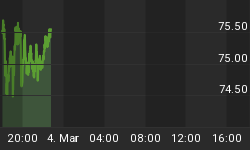What we think of as 'money' has been tremendously expanded by the use of debt. Now that fear has entered the credit market, money has become scarce putting pressure on leveraged asset prices. Margin calls are becoming more numerous throughout the system. Central banks, through various schemes, will attempt to reflate the credit bubble. But they will fail because they cannot create confidence.
Another Bank Run
We discussed the first bank run (Countrywide Bank) of the Panic of 2007 in A Little Distress Selling. Now we have our second. On Friday, September 14th Northern Rock, "currently the 5th largest UK mortgage lender, the largest financial institution based in the North East of England" with "76 bank branches in London" experienced a run. According to Bloomberg: "Hundreds of Northern Rock Plc customers crowded into branches in London today to pull out their savings after the mortgage-loan provider sought emergency funding from the Bank of England. Northern Rock spokesman Don Hunter said 'It is understandable that customers are concerned. Their mortgages and savings are safe.'" According to FT.com, the chief executive of Northern Rock, Adam Applegarth said that the Bank of England's bailout made Northern Rock the "safest place to invest." As Northern Rock customer Miranda Hall rebuts: "I have no means, absolutely no means, at this moment in time of accessing my money."
Remember the Federal Reserve was created in 1913, so it oversaw roughly 9,000 bank failures during the 1930's. History warns that central bank planners will not succeed against market forces. As Murray Rothbard's quote explains in the Bull Market in Cash:
"the Federal Reserve can print money, but it cannot create credit or confidence. 'Money' is therefore hoarded, by either the public or the banks themselves (if they are concerned about an increase in redemptions)."
Cash is King but the Yen is Emperor
As stated in 7 Reasons To Sell: "In a credit crunch, optimism turns to fear, risk is re-priced, and the rush to liquidate assets begins. Prices fall and cash is the only haven of value." This is also happening on a global level. For years, investors borrowed Japanese Yen cheaply and invested it into higher yielding currencies and investments ('the yen carry trade'). According to Bob Lenzner at Forbes, Merrill Lynch estimates that about $1 trillion worth of yen is being borrowed. BNP Paribas says the borrowing is closer to $5 trillion yen. Regardless, as an indicator of a major trend reversal, "Tens of thousands" of Japanese homemaker-traders are leveraging their bets on a fall in the yen. As global margin calls come in, investors will unwind their positions, and the homemaker-traders will find that they were the last ones to the party. We expect the Yen to appreciate for the long term, causing major pain for these novice investors.
At Lamont Trading Advisors, we provide wealth preservation strategies for our clients. For more information, contact us. Our monthly Investment Analysis Report requires a subscription fee of $40 a month. Current subscribers are allowed to freely distribute this report with proper attribution.















